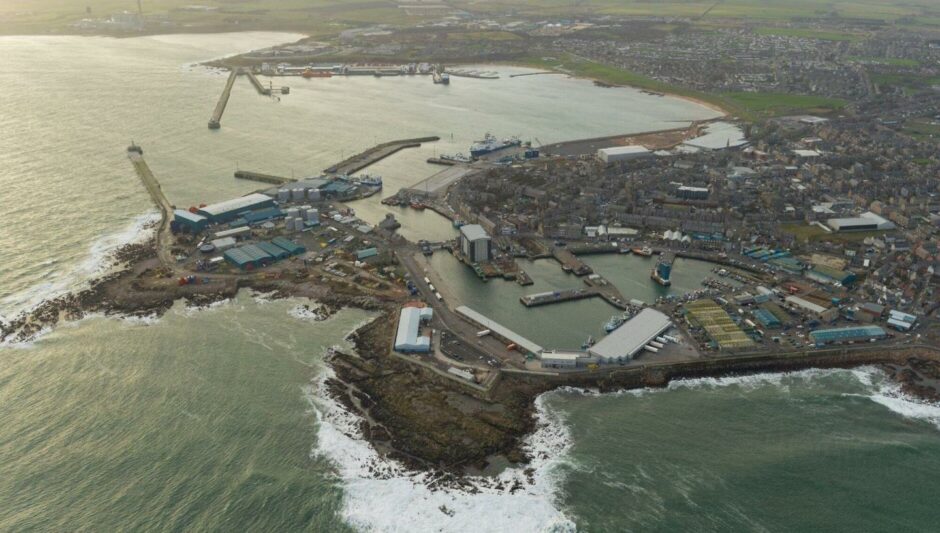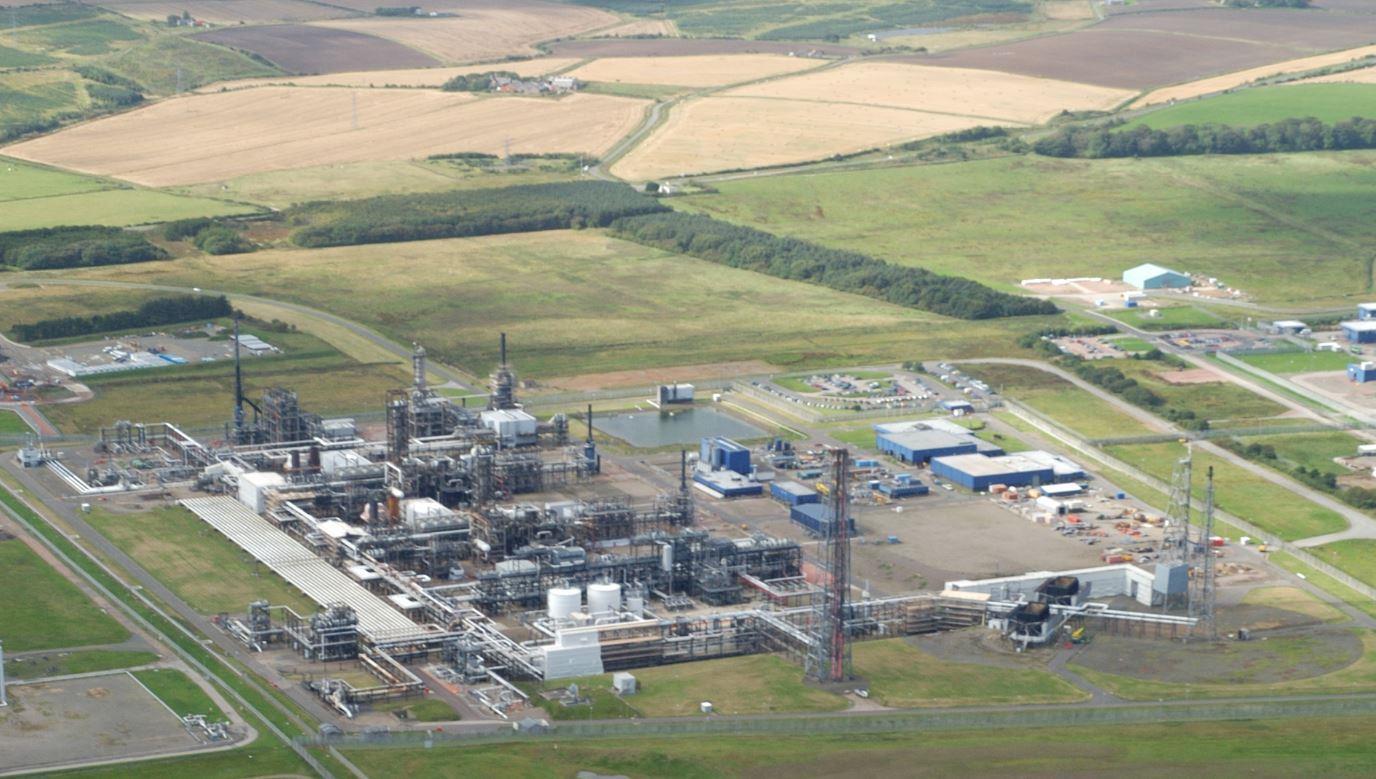
An agreement has been struck for the Acorn carbon capture and storage (CCS) project to decarbonise a new hydrogen plant in the Thames Estuary by shipping CO2 to Peterhead Port.
“Project Cavendish” aims to establish a 700 mega-watt low carbon hydrogen production facility in the Thames Estuary, using the Acorn CO2 transport and storage system by early 2027 to remove associated emissions.
Peterhead Port Authority has now joined the Scottish Cluster, a cross-sector group featuring some of Scotland’s biggest emitters, with work underway to explore development of a dedicated CO2 reception terminal to enable shipments.
Project Cavendish is a collaboration between Arup, National Grid Ventures, Shell, SSE Thermal and Uniper. It will be based on Kent’s Isle of Grain nearby to gas and electricity networks, power stations and a liquid natural gas facility.
Acorn CCS would store associated emissions within depleted gas reservoirs in the North Sea.
The deals come ahead of a hotly-anticipated competition announcement later this month on the first two CCS “clusters” to be selected for development across the UK.
Nick Cooper, CEO of Storegga, the firm behind Acorn CCS, said: “The signing of the MoU’s with Project Cavendish and the Peterhead Port Authority demonstrates how the Scottish Cluster can decarbonise not only Scottish emitters but those throughout the UK and Europe.
“The Acorn Project is strategically located in Aberdeenshire to make best use of legacy oil and gas infrastructure and Scotland’s excellent offshore geology for CO2 storage.
“This, combined with access to the deep-water port of Peterhead which offers significant CO2 import capabilities, means that the Scottish Cluster is able to support the urgent decarbonisation of industrial clusters across the UK, with the Cluster conservatively expected to be managing more than 60% of the UK Government’s overall CO2 capture and storage by 2030.”
Shipping emissions to Peterhead from other locations has long been in the project pipeline for Acorn, and has been viewed as a key means of scaling up the project in the future.
The agreements follow other recent MoUs with the owners of the SEGAL and FUKA gas terminals at St Fergus, the SSE Thermal and Equinor team behind the Peterhead Carbon Capture Power Plant, and the Ineos plan to send a large portion of emssions from Grangemouth to Acorn by 2026/27.
Business leaders including Sir Ian Wood have also recently voiced their support for the Acorn project’s success.
Scottish net zero secretary Michael Matheson said: “This Memorandum of Understanding demonstrates how Acorn will also support the UK and parts of Europe in their decarbonisation journeys and it is fantastic to see Peterhead Port committing to invest in carbon capture infrastructure as the Scottish Cluster continues to demonstrate how vital a role it will play in energy’s just transition to net zero.”
Simon Brebner, chief executive of the Peterhead Port Authority added: “We’re delighted to have joined the Scottish Cluster and look forward to the feasibility and early design work on a dedicated CO2 handling facility within the port.
“Our proximity to the assets that are intended to be deployed for CO2 storage and our cross-sectoral expertise makes the port the ideal location for development in this vitally important area.”
Several major players including Harbour Energy, and ExxonMobil have backed the Acorn project, including Shell, which is backing both Acorn and Project Cavendish.
VP of hydrogen Paul Bogers said: “Shell is advancing hydrogen projects up and down the UK, both to produce the gas and to store the associated emissions.
“We and our partners in Project Cavendish are looking to produce hydrogen in the Thames Estuary to serve customers in the South East of England.
“This MoU with Acorn CCS is a key step that enables us to explore transporting the associated carbon emissions and storing them off the coast of Aberdeen. It is an example of how companies and regions can work together to move the UK closer to its net zero target.”

 © Supplied by Shell
© Supplied by Shell